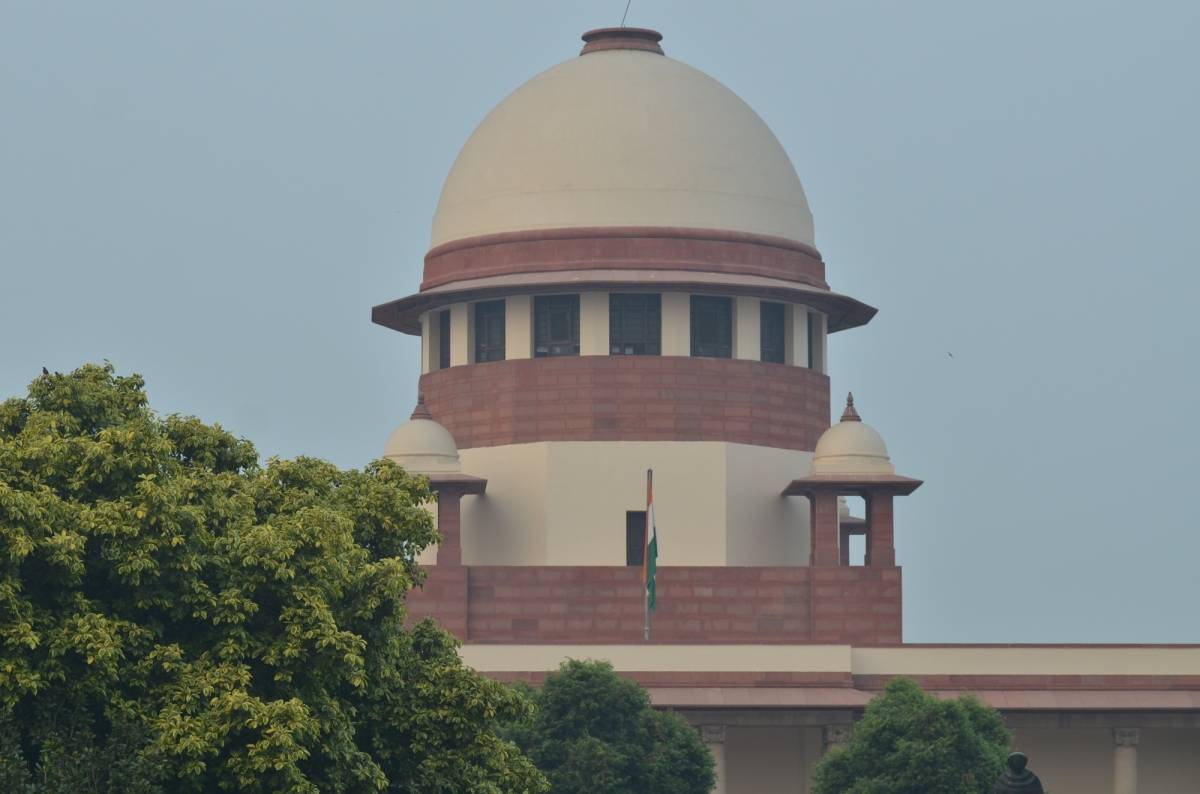The top court’s judgment came on a plea filed by eight farmers challenging a Kerala High Court judgment, which dismissed their appeals for compensation for taking over their 1.7 hectares of land …reports Asian Lite News
The Supreme Court on Tuesday said no citizen should be deprived of his or her property without authority of law, as it would be a violation of the Constitution.
A bench of Justices Dinesh Maheshwari and Vikram Nath said: “Construction/widening of road no doubt would be a public purpose but there being no justification for not paying compensation, the action of the respondents would be arbitrary, unreasonable and clearly violative of Article 300-A of the Constitution.
The bench said Article 300A though not a fundamental right but nevertheless it has status of being a constitutional or a statutory right and it provides that no citizen would be deprived of his property save without authority of law.
“Depriving somebody of his property, where it is land, can be made by number of modes e.g. by acquisition, surrender or by transfer and other facets also,” it said, adding that in the present case, land being utilised for the road to be owned by the panchayat/municipality, could either have been voluntarily surrendered, transferred by way of title deeds, or by way of acquisition as may be provided under the statute.
The top court’s judgment came on a plea filed by eight farmers challenging a Kerala High Court judgment, which dismissed their appeals for compensation for taking over their 1.7 hectares of land for widening of road by Sulthan Bathery Municipality. The high court relied on the Panchayat’s contention that they had voluntarily surrendered their land for no consideration.
The top court noted that the high court proceeded on a wrong premise on shifting the burden on the appellants. “The assertion that it was surrendered voluntarily without any claim for consideration is by the panchayat/municipality. The PWD has only stated that it received the land from the panchayat and that it was given to understand that the land was surrendered voluntarily. Thus, it is the stand of the panchayat/ municipality which is to be taken note of,” it noted.

The bench said the panchayat and the PWD have failed to produce a single piece of document or evidence in any other form in support of their defense that the appellants have surrendered their land voluntarily. “The consistent stand of the appellants, on the other hand, has been that they have not given their land to the panchayat voluntarily and that they were assured that they would be suitably compensated,” it noted.
The top court said in this matter there is neither any acquisition proceedings nor any transfer of rights by the appellants by way of sale, gift or otherwise.
“The appellants are farmers and the land utilised is agricultural land. It was part of their livelihood. Depriving them of their part of their livelihood and also of their property without authority of law would be violative of Article 21 and Article 300A of the Constitution,” it said, as it set aside the judgment passed by the division bench of the high court in 2018, and maintained the single judge bench’s decision, which directed for disbursal of amount as may be determined by the Collector after ascertaining the market value of the property to the parties concerned.

Leave a Reply